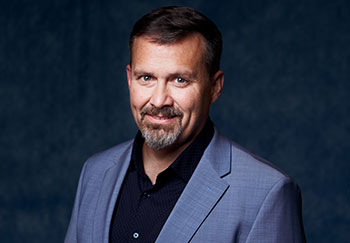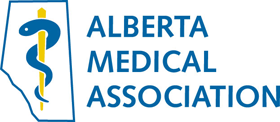Waiting for cancer care is the new normal
May 17, 2024
 Dear Members,
Dear Members,
Cancer care provided in Alberta is second to none, when you can access it. Unfortunately, this expert care is no longer being delivered in a timely fashion because we do not have enough oncologists to provide the care that patients need. That’s the key message in the first issue of our new public information series Acute Care Concerns: Cancer Care.
Why is there more need for cancer care?
Cancer rates are outpacing population growth. Reduced access to family and rural generalist care, amid pandemic disruption to screening and preventive care, means patients show up in emergency departments with advanced cancers that could have been detected and treated earlier. The number of new cancers being diagnosed in overcrowded emergency departments, which are simply not resourced for this type of care, has never been higher.
Meanwhile, Alberta’s population is exploding, and more patients equal a need for more care. Alberta’s population is also aging, and older patients have a much higher incidence of cancer. It’s simple math: more patients with cancer necessitates more specialists to treat, cure and care for them.
Technological innovation like genomic therapy can now save patients who would not have survived short years ago. This is wonderful news, but it adds a new population of complex patients who need special care after treatment, often over a period of years. Only oncologists can provide this follow up service.
Why is there a shortage?
All oncologists are employees or contractors, meaning there can be no recruitment if spaces are not established first by the funder. An oncologist cannot just decide to move to Alberta and a community cannot simply hire one. Unfortunately, despite the increasing need, new oncology positions have not been created to keep pace. We have approximately the same number of oncologists in Alberta as we did 10 years ago.
Clearly, we must do everything we can to hang on to the oncologists we have today. Then, assuming more spaces become available and we can begin to recruit, we need to address the fact that Alberta is simply not currently competitive with other provinces in retaining or attracting oncologists. We have fallen behind. Few new Alberta-trained graduate oncologists have stayed in the province in recent years. Meanwhile, other provinces like BC and Ontario are actively hiring as many oncologists as they can. The Royal College of Physicians and Surgeons of Canada will produce only 25 new oncologists for all of Canada this year. Alberta alone could use two-to-three times as many today.
What’s the impact on patients?
The net impact on patients is that they wait: to see an oncologist, for a treatment plan and for a course of treatment. For any patient, waiting for care is always difficult and frequently contributes to pain, disability or worsened illness. In the case of cancer care, delays of even a few weeks can limit the range of treatment options. A patient who might have been a candidate for an exciting new treatment that could cure the disease may no longer be eligible. Instead, they face longer treatments, poorer outcomes or - even worse - may have no treatment options left.*
Action is needed. More oncologists are needed. More care is needed.
For more information, read the full Acute Care Concerns: Cancer Care issue paper. We will be highlighting related commentary in the days ahead and will be profiling other specialty areas that are also in great need of support.
Regards,
Paul Parks
President, Alberta Medical Association
* In the original version of this letter, this sentence referenced palliative care as an end point when no other options are available. It’s important to note, though, that there is strong evidence that palliative care can also be successfully integrated with disease-directed treatment improvements at other stages of the patient’s journey. We thought we would take this opportunity to make the distinction.

2 comments
Commenting on this page is closed.
Faustina A.A.I
10:02 AM on May 17, 2024
Other impacts it may have on patients:
*Aim of QI not being meant
*Patients will be unsatisfied leading to poor hospital rating
The development and improvement of any health system still lies hugely on the feedbacks of patients. They are the reason the system was established the first place. So let’s keep patients wellbeing and safety in mind.
Thank you for your support thus far.
Kind regards
Faustina
joe
4:30 AM on May 20, 2024
My mother was simply denied any cancer treatment from The Cross Cancer due to a nursing staffing shortage. They told us there were no beds available for in-stay treatment. We asked about getting treatment and returning to UofA as an outpatient, but the physician from The Cross Cancer denied that as well. We inquired about transferring to Calgary or another province, but they refused to help us get treatment. They got back to her about treating her as an outpatient three weeks later, but it was too late. The cancer had been progressing for a week. They knew the results prior and were covering their tracks. My mom passed away in a great deal of pain due to the missed treatment at both hospitals.